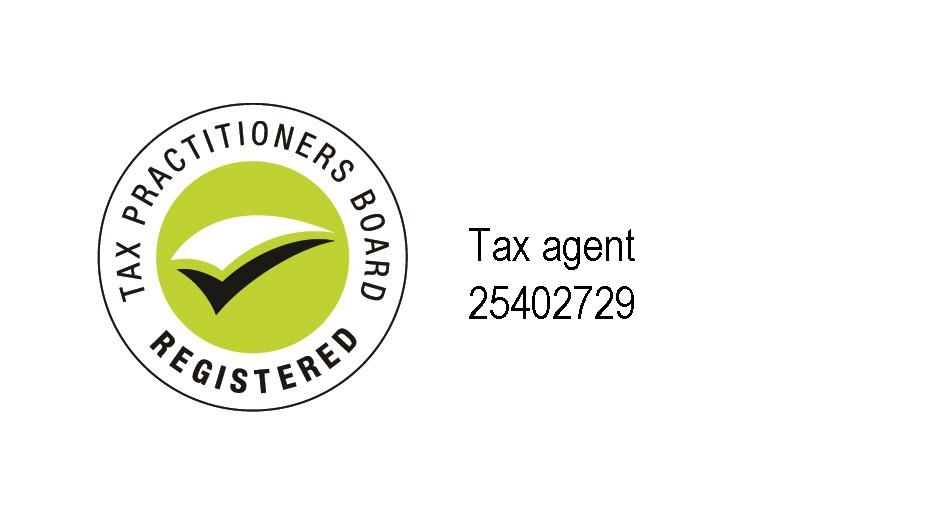Essential Tasks at End of Financial Year

Do you find the end of financial year daunting? Follow our guide to the essential tasks for end of financial year and you can be sure of a strong start to the new financial year.
The end of the financial year is a very important time of the year. It is a time when we tally up the efforts of the year behind us and assess our progress and achievements. We complete bookkeeping, we report compliance via tax returns and we set new goals and targets for the year head. For this reason, end of financial year is a great opportunity to get your business organized and set smart goals. To ensure you sail through end of financial year and start strong in the new year, we recommend the following.
Get The Right Support
Your key to compliance and sound financial advice, is a registered tax agent. It is important to check that your tax agent is registered with the Tax Practitioners Board (TPB) and a member of other reputable tax associations. These membership groups require your tax agent to undertake a minimum number of hours of professional development each year – which ensures they stay up to date with changes in tax legislation and the ATO rules. Having a relationship with an unregistered tax or Business Activity Statement (BAS) agent is a real risk to your business, so take a moment to check the facts.
What Tax Deductions Can You Claim?
As a business owner, it is your responsibility to communicate to your tax agent activities and costs that you believe may be tax deductible. The role of the Tax Agent is to confirm this for you, provide you with the detailed rules, confirm the data collection requirements and, calculation methods.
If you require information on what your business can claim, read our article Business Tax Deductions That You Should Understand.
Tax Planning
As we move towards the end of the financial year, it is important to build a tax plan. The plan is a strategy for what you will claim and when. Often this plan or strategy will act as a roadmap and, will require review year-on-year as your business and personal circumstances change.
The aim of the tax plan is to put in place strategies to keep your tax to a minimum. Tax planning is acceptable and legitimate, when you do it within the boundaries of legislation.
Sometimes, a business may act on a tax plan that crosses the boundaries of the law and attracts the attention of the ATO – to determine whether your strategy was lawful. Obviously, involvement in tax avoidance schemes can expose your business to significant financial and reputational damage. You may be required to pay back unpaid taxes – with interest and penalties.
For this reason, I ask you to turn your attention back to point one in this article, Get The Right Support. Tax planning is about putting in place legitimate strategies to maximize tax deductions and exemptions. A good tax agent will review your business situation and develop a tax plan that ensures you only pay what you are required to pay, when you are required to pay it.
Bad Debts
At this stage of the year, we recommend businesses take this time to consider how you will treat bad debts, whilst you have the time to act and adjust accordingly. Semmens & Co recommends that business owners:
- Have a look at outstanding invoices and see if some date back as far as the previous tax year.
- Confirm in writing that the debt will be written-off at the end of the financial year by choosing to write-off the bad debts that have occurred over a 12-month period before June 30.
- Consider debtor factoring for any outstanding debts, less than 12 months old, that remain outstanding at the end of financial year.
You should aim to write off any debtors or assets before year end, to claim a tax deduction.
If you require information on how to treat bad debt, read our article Are your bad debts costing you extra tax?
Record Keeping and Compliance
There are key tasks that every business should undertake at year end.
Make sure to collect and collate your data:
- Asset Register: update your Asset Register and ensure you have the right data and receipts for all assets purchased. This will help build a picture of the businesses expenditure on improvements and will also help calculate depreciation expense claims and for capital gains tax purposes.
- Stocktake: perform a stock-take and ensure you have accurate data on your stock position in preparation for your company tax return.
Make sure to run your standard reports, to gain a good understanding of your financial position:
- Profit and Loss
- Balance Sheet
- Aged Debtors and Creditors
- SGC payables and accruals
- Cashflow forecast
Collecting data and reviewing your reports is imperative to understand the true financial health of your business.
If you are an individual or sole trader, consider using the ATO app’s mydeductions app. This is a handy and easy to use record keeping mobile that will allow you to collect and maintain all your expenses data as you go – meaning less stress at the end of the financial year. Learn more about the app by reading our article Keep You Tax Receipts and Deductions Organised.
Semmens & Co advocates performing a financial review of your business monthly. This will ensure you are making data driven decisions based on the latest data. If you don’t have the time or skill to run or assess the reports, request a meeting with Semmens & Co. Or if you need help getting a financial review process and cadence in place in your business, ask Semmens & Co about our Business Advisory Services.

Your Position With the ATO
As we approach the end of financial year and start collecting data for end of year compliance activities, it is imperative to ensure your affairs with the ATO are in order.
Your ATO obligations can impact the outcome of your tax planning efforts. If you have not met you PAYG or FBT obligations, this could result in our having to pay additional tax in the form of interest and penalties. For this reason we encourage all clients to:
- Review any outstanding PAYG withholding, fringe benefits tax (FBT), Goods and Services Tax (GST), and the taxable payments reporting system.
- Review your SGC obligations.
If you are unsure about your obligations, call your tax agent for information. If you know you have not met your obligations once again, speak to your tax agent for a plan on how to remedy the situation before you commence the end of year compliance activities. This is the perfect time to show that you are taking responsibility for past errors and seeking to proactively rectify the situation – which may have a positive impact later in the process.
Stay Abreast of Coming Tax Changes
Each year there are changes in tax legislation and rulings handed down by the ATO, which impacted the way taxes are administered and calculated. A good tax agent will be aware of these changes and will proactively communicate changes as they occur. You can also register to receive information on changes in legislation and other tax related issues via various subscription-based news forums.
Tax Refund Scams
Tax scams are rife at this time of year. Common scams include:
- Tax Refund Scams: scammer will claim you have overpaid your taxes and are eligible for a refund. However, in order for you to receive this refund, they will ask you to pay an admin fee or transfer costs.
- Tax Owed Scams: scammers will claim you’ve underpaid your tax. They will advise you to repay the amount you owe immediately. In order to make this payment, they request your credit or debit card details, or ask you to send money through a money transfer.
Update Your Business and Marketing Plans
This is the time to heed your strengths and weaknesses, what you are doing well and what parts of your business need more of your time and attention. Once you have a good idea of what these items are is it good to document your strategies for success in a Business Plan and Marketing Plan. These plans ensure you set yourself goals for the coming 12 months, which aim to directly address and improve your areas of weakness. The idea is to have a plan, with a clear goal and measure your achievement toward that goal periodically through out the year to ensure you a) stay on track, which should lead to b) improvement.
Regularly reviewing and updating your plans will help you to:
- remind yourself of your goals and priorities
- assess whether your strategies are working
- pivot and adapt to changes in your environment
- prioritize your effort. Stay focused on the important stuff and don’t get bogged down in the day-to-day operational fires.
If you would like more information business planning and how to develop a Business Roadmap, Plan on a Page, Business Plan or Marketing Plan, contact Semmens & Co for a free consultation on how to make this happen.
Consider Your Business Structure
From year to year, as your business evolves and grows, your business structure may no longer be right for you. This may result in a need to change your business structure or restructure your business. And, as to be expected, with this kind of structural change comes changes to your compliance and tax obligations and, the regulations you must adhere to.
If you need help assessing whether your structure still meets your needs or if you would like to understand how to go about a restructure, contact Semmens & Co for a review and consultation. And remember, it’s tax deductible!
Insurances
This is the perfect time of year to review your insurances. Do your policies still meeting your needs? Do you have the right insurances in place and is the coverage enough? And are you getting the best rate?
We cannot stress enough how important it is to understand your cover. Understanding what you are covered for in the event of a claim and how/when you will be reimbursed it something you want to understand before the event – not after. Further, sometimes you can wrongly assume that you are covered when in fact you are not. Hence, if you are in the process of re-assessing your insurance needs, take the time to read the product disclosure statements (PDS) for your insurance policies carefully. Look at the terms they use and the definitions and make sure they are what you need them to be.
Assess Your Risks
Does your business have a risk register? How often are you reviewing your business risks and how many will you remediate next year? How many need to be re-assessed annually?
Let me give you an example. Cyber threats can impact your business any day of the year. This is not a set and forget remediation. When was the last time you reviewed the latest tools to help reduce your risk?
This is a great time to backup an internal server, cleanse them of any waste and old files, backup important documents like registrations, financial and customer data and organize off-site storage if required. Or consider a cloud strategy. This can help ensure your business can stay up and running during events such as natural disasters.
For larger companies, this may be the time to consider a Business Continuity Plan and put in place plans and strategies for how you will function if you are the victim of a cyber attack or you lose connectivity for a period of time.
End of financial year can be stressful, as we rush to close out the activities of the past 12 months but if you start now, plan out what needs to be done and delegate to your team, you may find that this can be an enriching experience that sets you up for greater success in the next financial year.
If you would like more information on how to implement any of these strategies, feel free to contact Semmens & Co on 03 8320 0320 for a free consultation.
If you’re looking for more information on how to maximize tax benefits for your business, download our e-book Top 9 Tax Tips That Could Save You Thousands or, learn more about these strategies by registering to attend our webinar.







